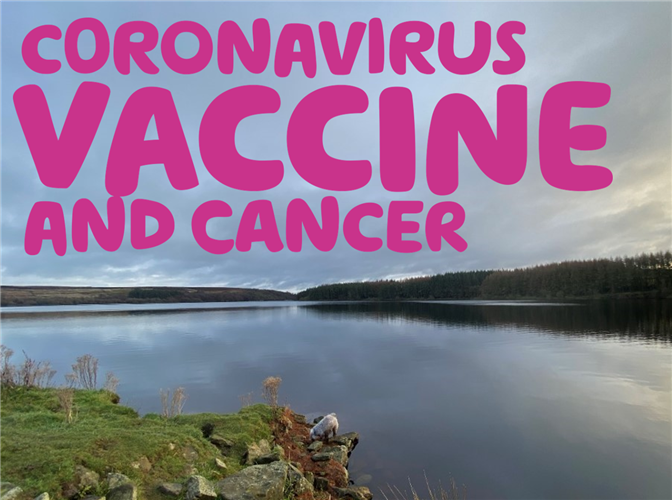
There’s a lot of information in the media just now about different vaccines, and it’s normal to have questions. It’s important to make sure that you’re finding the answers to these questions in the right places. With so much information online, it can be easy to feel confused or worried.
In the UK, when you’d like to read more information about the vaccine, consider visiting the following pages:
It can be comforting to ask questions and read discussions here on the Community about the vaccine, and to know you’re not alone. However, it’s important to remember that older discussions on the site may now be inaccurate for your current situation. Other members on the site aren’t medical professionals, and might not have the right information that you need.
If you’d like to post a question about the vaccine on the Online Community, consider asking our Macmillan nurse specialists in the “Ask a nurse” section. You can also see some questions they’ve already answered about the vaccines:
Please remember however, that these answers may become outdated when new information arises. The NHS website and the Macmillan website are both being regularly updated with new information.
Any Coronavirus (COVID-19) vaccine which has been approved is effective and can be given to someone going through cancer treatment. Macmillan currently recommends that everyone should have the vaccine when it’s offered, unless you are recommended otherwise by your doctor.
All the vaccines have been approved because they have passed tests on safety and effectiveness. The NHS recommends the Oxford University Vaccine Knowledge Project’s website if you’d like to find out more about how vaccines are tested.
Currently, we don’t know when people with cancer will be given the vaccine. You can find out more about who is being prioritised for the Coronavirus (COVID-19) vaccines in the UK on the government’s website. This website also has information on why different groups are being prioritised at the moment. Many people with cancer will be included as a ‘priority group’ for vaccination because of their age or clinical vulnerability.
Staying safe online is crucial, especially when it comes to your health and wellbeing. This is important whether you’re looking for information about a cancer diagnosis, medications or the Coronavirus (COVID-19) vaccines. It’s easy to find lots of stories and information online which might not be true, but can still cause concern. Where you can, try to use websites which are ran by official health authorities such as the NHS, Public Health England or the World Health Organisation, or registered charities.
You can often find information such as whether a website is ran by a registered charity, or has been reviewed for accuracy, at the bottom of the webpage.
Here on the Online Community, we know how valuable it is to be able to read and share personal experiences. Lots of members have been talking about their experiences and thoughts around the vaccines.
If you have any other questions, please remember you can talk to our Macmillan nurse specialists and other experts on the Support Line. 7 days a week, 8am-8pm. You can contact the Support Line over email, live webchat or by calling 0808 808 00 00, 7 days a week between 8am-8pm. We’d also always recommend talking to your GP or medical team if you have questions about Coronavirus (COVID-19) vaccines in regards to your specific diagnosis and situation.
Whatever cancer throws your way, we’re right there with you.
We’re here to provide physical, financial and emotional support.
© Macmillan Cancer Support 2025 © Macmillan Cancer Support, registered charity in England and Wales (261017), Scotland (SC039907) and the Isle of Man (604). Also operating in Northern Ireland. A company limited by guarantee, registered in England and Wales company number 2400969. Isle of Man company number 4694F. Registered office: 3rd Floor, Bronze Building, The Forge, 105 Sumner Street, London, SE1 9HZ. VAT no: 668265007